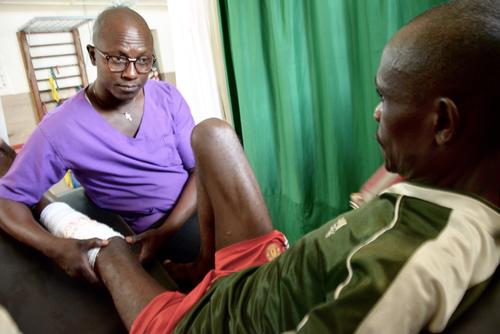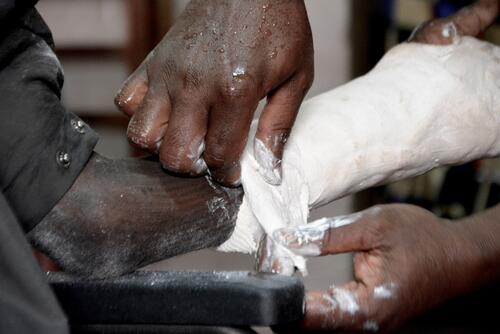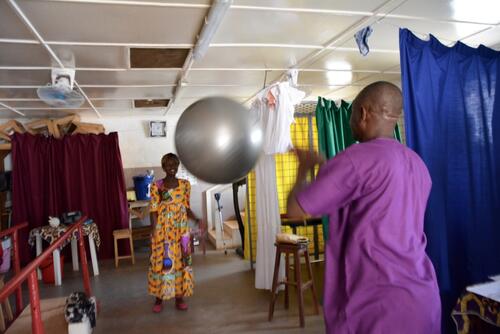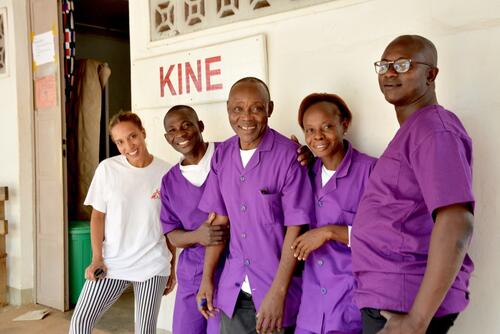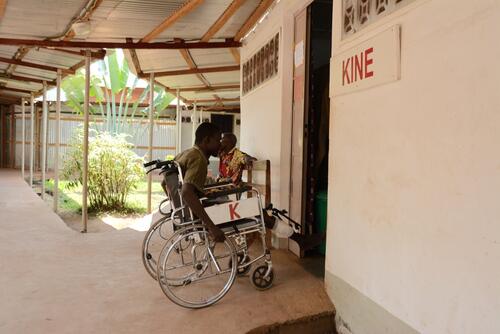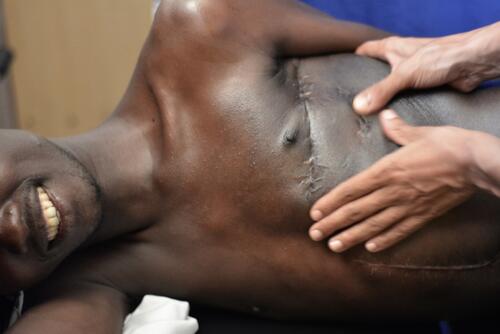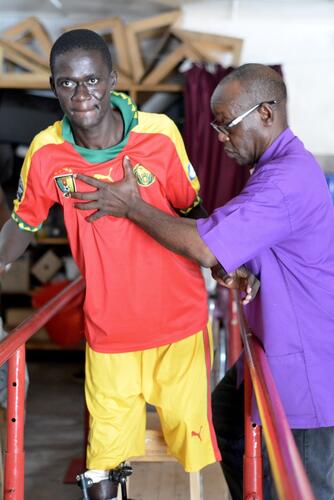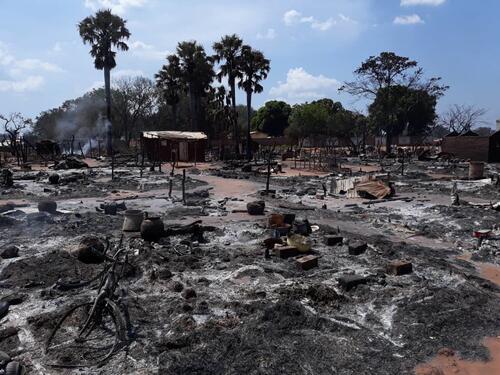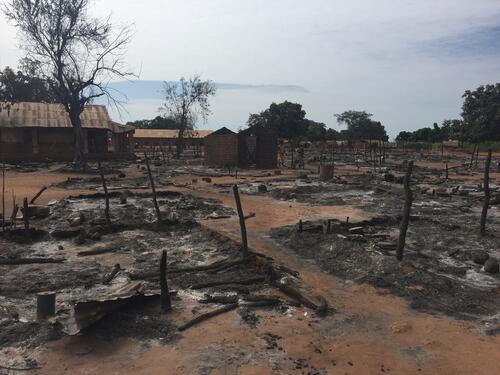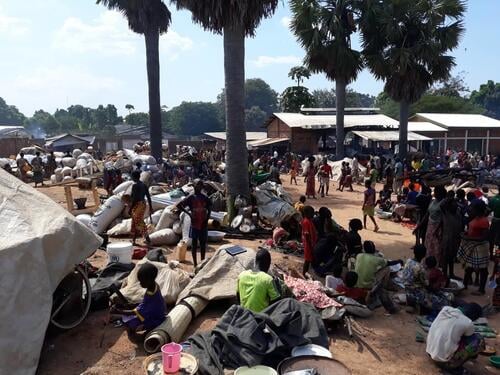The physiotherapy department of the SICA hospital in Bangui, the capital of Central African Republic, plays an essential role in the recovery process of patients. Teams ensuring an optimal recovery period for patients, giving them a maximum amount of autonomy in order to allow them a rapid social and professional reintegration, and learning to live with a new physical condition. At the SICA hospital, 75 percent of patients are victims of road accidents or have been wounded by bullets or knives.
Fractures are often so complex that they require external fixation and sometimes even the amputation of the damaged limb. In order to avoid long-term physical consequences, particularly due to a bad repositioning of bones or significant weakening of the muscles, physiotherapists must treat patients as early as possible, as soon as they leave the operating theatre or the emergency department. However, whatever the treatment, regaining mobility and the rehabilitation process often lasts for months or even years.
Composed of five members, the SICA physio team performs an average of 150 consultations per week and oversees the weekly outpatient monitoring of more than 100 people. Over 10 percent of patients treated at the SICA hospital are referred from the provinces. Due to the lack of specialised care outside of Bangui, the continuity of rehabilitation is generally difficult to ensure once the patients are discharged from hospital. This is why the physiotherapists make sure that patients learn simple and easy to perform exercises at home. The aim is to get back on track as quickly as possible.
